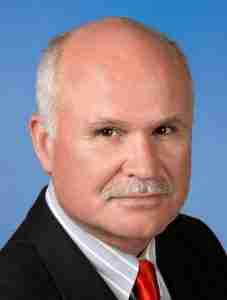
FNIH Selects Eight Rare Diseases for Bespoke Gene Therapy Consortium Trial Portfolio
By Alex Keown
May 30, 2023
Multiple companies and organizations across the BioHealth Capital Region and Philadelphia are backing a consortium that combines the strengths of public and private research organizations to develop gene therapies for rare diseases.
The Accelerating Medicines Partnership Bespoke Gene Therapy Consortium (AMP BGTC), helmed by the Bethesda-based Foundation for the National Institutes of Health (FNIH), selected eight rare diseases for its clinical trial portfolio. The BGTC is funded with more than $97 million in financial and in-kind commitments from its partner companies and organizations.
The consortium pools the strengths of its members in order to advance the development and delivery of customized, or ”bespoke” gene therapies, that could treat the millions of people affected by rare diseases. In addition to developing bespoke gene therapies, the consortium is focused on streamlining the regulatory approval process through the establishment of minimal standards for manufacturing, product analytical testing and pre-clinical testing.
Diseases that are classified as rare or orphan, are defined by the FDA as a disease or condition that affects less than 200,000 people in the country. While the number of patients affected by a single rare disease is relatively small, there are an estimated 10,000 known rare diseases that affect more than 300 million people across the globe. The majority of these diseases have no known treatment. The consortium aims to change that by making adeno-associated virus (AAV) technology more accessible to a broader range of diseases
The eight diseases that will make up the clinical trial portfolio are:
- Charcot-Marie-Tooth disease type 4J
- Congenital Hereditary Endothelial Dystrophy
- Morquio A Syndrome
- Multiple Sulfatase Deficiency
- NPHP5 Retinal Degeneration
- Propionic Acidemia (PCCB)
- Retinitis pigmentosa 45
- Spastic paraplegia 50
“With this clinical trial portfolio, we can build the bridge that creates a standardized and publicly available roadmap for all AAV gene therapies to follow, with repeatable solutions for templates, regulatory files and manufacturing processes,” Courtney Silverthorn, Associate Vice President, Science Partnerships, at the FNIH said in a statement. “A single rare disease can affect hundreds of thousands of people globally, or merely a few dozen, and the BGTC aspires to make gene therapies more accessible and sustainable no matter the size of the patient population.”
Private-sector companies and organizations supporting the consortium include the Alliance for Regenerative Medicine, based in Washington, D.C., Maryland’s REGENXBIO and Philadelphia-based Spark Therapeutics, a division of Swiss pharma giant Roche.
Rockville-based REGENXBIO’s preclinical research in Mucopolysaccharidosis type IVA (MPS IVA), also known as Morquio syndrome, was selected for inclusion in the consortium’s portfolio. The company will donate licenses from its NAV Technology platform as a potential treatment for the rare metabolic disease that primarily impacts the skeleton. Specifically, REGENXBIO will provide the license for its NAV AAV8 and NAV AAV9 assets to the consortium.
REGENXBIO believes the use of its technology will address the consortium’s goal of making gene therapy more accessible through the creation of a platform approach to deliver novel therapies for many different genetic disorders.
Philadelphia’s Spark Therapeutics, which has already won approval for Luxturna, a gene therapy for a rare form of blindness, is also supporting the consortium’s efforts. Although SPARK has not made a public announcement about its partnership with the consortium similar to REGENXBIO, the company is also focused on developing gene therapies for other forms of eye disease, including Stargardt disease, a form of macular degeneration that causes progressive vision loss. Other areas of focus include lysomal storage disorders, hemophilia and neurodegenerative diseases.
Earlier this year, Spark Therapeutics broke ground on its Gene Therapy Innovation Center in University City on the Drexel University Campus in Philadelphia. The new facility is expected to more than double Spark’s physical footprint in the Philadelphia area.
Managed by the FNIH, AMP BGTC is a public-private partnership between the National Institutes of Health, FDA, biopharmaceutical and life science companies, and non-profit and other organizations. The organization aims to make clinical trials for gene therapies more efficient, less expensive, and more accessible to patients with rare genetic diseases.







